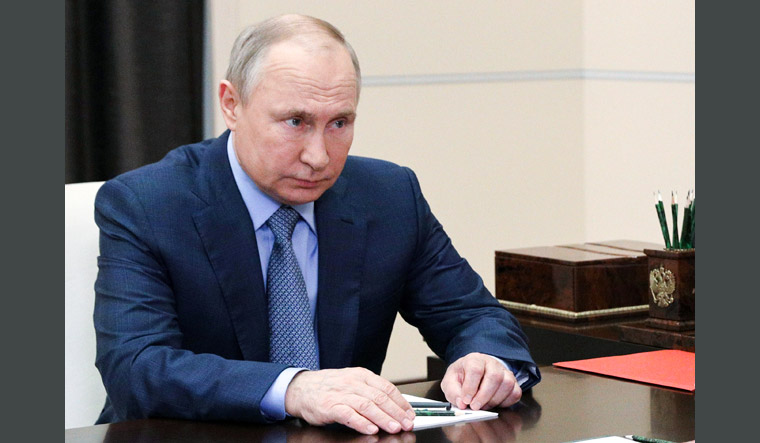Amid rising tensions with Russia, European Union leaders met with heads of state from former Soviet Union, including Ukraine, Armenia, Azerbaijan, Georgia and Moldova. They pledged to deepen political, trade, energy and cultural ties. The president of Belarus, Alexander Lukashenko, boycotted the forum.
All these nations share borders with Russia and are strategically important energy hubs, as well as with the 27-nation EU.
Amid the frostiness over Russian troop-buildup along the Ukrainian border, Chinese President Xi Jinping and Russian counterpart Vladimir Putin held a virtual summit as part of their efforts to build a strategic alliance against the increasing adversity against them from the United States and the European Union. The video summit took place in the immediate backdrop of tensions in recent weeks over Russia massing tens of thousands of troops near Ukraine's border, a move which sparked fears in Kiev and the West that Moscow is planning a new invasion. Russia has denied any plans to attack Ukraine and blamed Kyiv for its own military build-up in the war-torn country. The summit took place about eight days after Putin had a similar virtual meeting with US President Joe Biden on December 7.
The head of the European Union's executive commission had warned Russia that the bloc has a battery of additional sanctions ready if Moscow decides to invade neighboring Ukraine. European Commission President Ursula von der Leyen said that beyond scaling up and expanding existing sanctions, the EU can adopt "unprecedented measures with serious consequences for Russia". Von der Leyen told the European Parliament that there are already economic sanctions in place targeting Russia's finance, energy and sectors because of its annexation of Ukraine's Crimea Peninsula in 2014 and actions since that the West sees as increasingly aggressive. She did not elaborate what form any new sanctions would take. Germany's new chancellor, Olaf Scholz, reinforced von der Leyen's message Wednesday, telling the lower house of the German parliament that any violation of territorial integrity will have its price, a high price, and we will speak with one voice on this together with our European partners and our trans-Atlantic allies.
-Inputs from agencies




